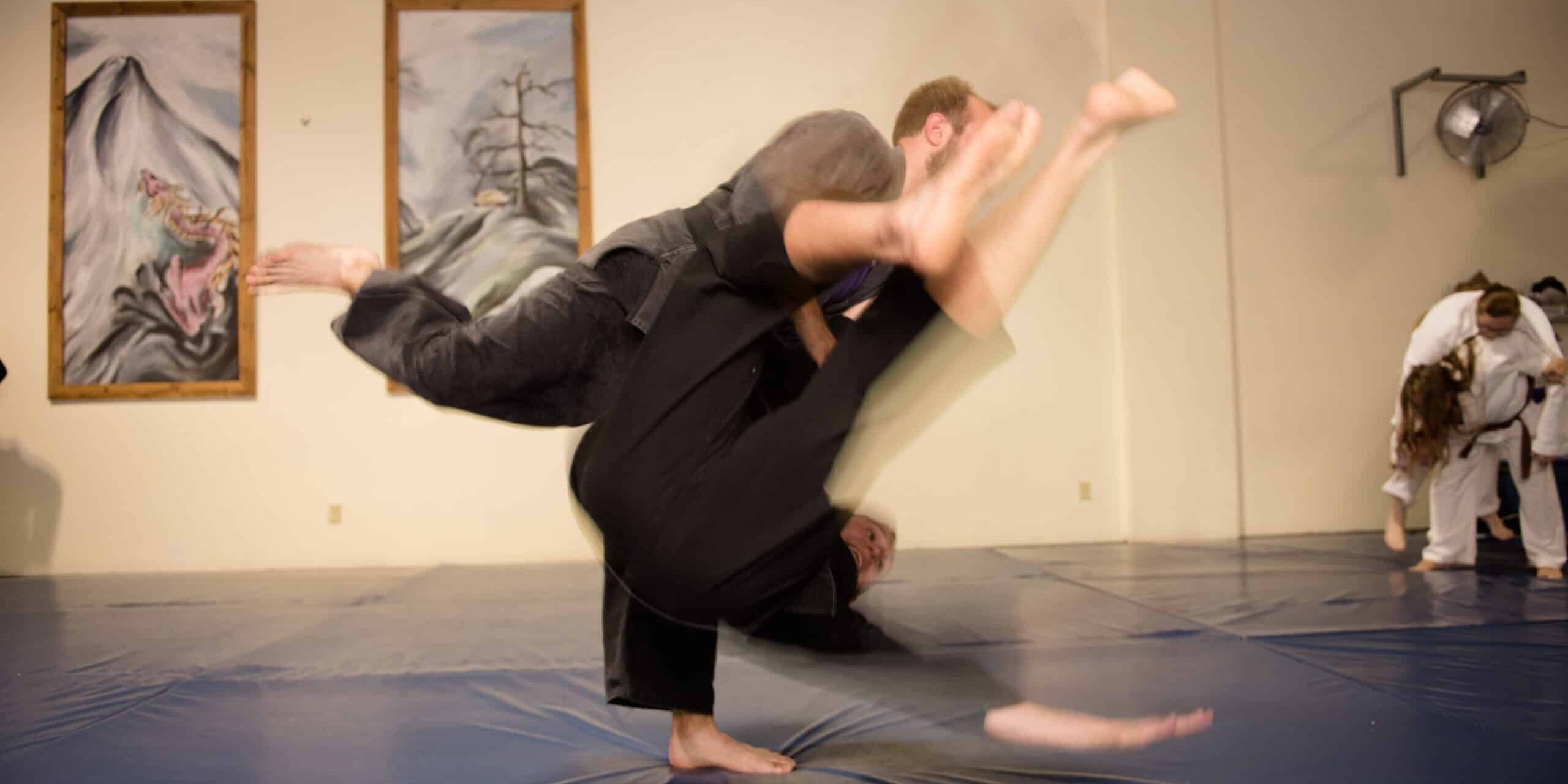Some of the benefits seem more obvious—like fighting skills, but martial arts offer us a wide variety of expected and unexpected outcomes. Let’s look at some fundamental skills that grow through the study of martial arts.
Physical skills
Cardiovascular health. Training increases cardio capacity the same way interval training does, by increasing and decreasing your heart rate and breathing in turns. This cycling helps your heart and lungs build strength and health.
Physical strength, endurance, and resilience. These form the basis of what we call the body’s frame, or the way that our muscles and skeletal structures work together. As our muscles build strength and endurance from repeated and challenging movements, our bones also build resilience and resistance to injury.
Jujitsu practice requires us to lift another person to develop throwing techniques. The more we lift and shift them, the more our own bodies work to get better at what we’re doing: which means we build strength and push our cardiovascular systems. As our classmates practice on us, repeated falling helps us build resistance to injury, bruises, and bone damage. Since we teach our skills progressively over time, our bodies can effectively adapt and improve.
Agility and coordination
Total Ryu Martial arts, and martial arts more broadly, focus on developing the nondominant side of our bodies as well as the dominant. Many other activities and sports prioritize the dominant side, which can limit our broader capacity for agility and coordination. The brain learns to use only half the body for all kinds of movement and work.
By requiring a focus on both sides of the body for improving each of our techniques, our approach helps create neural pathways that build the brain’s focus, health, and adaptability. As your martial arts practice grows and develops, both your brain and body benefit. Older adults, especially, need to actively seek new pathways, and starting younger lays a strong foundation for a lifetime of healthy brain activity.
As we build both body and brain health, we also improve injury prevention. Developing agility and coordination helps us manage the falls we might encounter elsewhere: we can react quickly to get out of the way, avoid falling, or fall with the ease and fluidity required to avoid injury.
Mental resilience and confidence
We ask our students to do hard things that they’ve likely never done before. The skills we teach are not intuitive or natural. We push students outside of their comfort zone with adrenal training, speed training, and multiple-attacker training.
As they build the physical skills to cope with these situations, students also develop mental resilience as they see they can respond to unfamiliar and challenging circumstances. If they can do this in the dojo, they can tackle unfamiliar and challenging situations in other areas of their lives. Experiencing improvement over time and learning they can handle themselves in physical confrontation also builds confidence. Over time, as they continue to train and face increasingly difficult techniques and challenges, this confidence continues to grow.
If you want these benefits for yourself or for your children, we can get you started right away. You’ll learn something cool and improve yourself while doing so. Our dojo is a fun, engaging, and uplifting place to learn.



